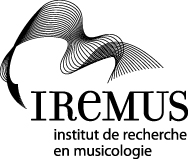WRITINGS
TEZUKA Miwako
Jikken Kobo (experimental workshop): Avant-garde experiments in Japanese art of the 1950s
Edition: Ph.D. dissertation, New York (NY), Columbia University, 323 p.
Date: 2005
Region: JAPAN
Origin: UNITED STATES
Type of media: Grey
Language: English
Editor: M.B.
Comment: Access: ProQuest Dissertations & Theses: The Humanities and Social Sciences Collection, Copyright UMI - Dissertations Publishing 2005
Abstract:
This dissertation examines the group Jikken Kōbō (Experimental Workshop; active 1951--ca. 1957) that signaled the rebirth of avant-garde art in post-1945 Japan. Its fourteen members created a series of ephemeral works, including plays and dance performances, for non-museum spaces. Each chapter of this dissertation highlights select works and sets them within particular socio-historical and cultural contexts in order to illuminate the Kōbō's key concept, experimentation (jikken). The first chapter introduces Jikken Kōbō and its inaugural project entitled The Joy of Life. This ballet was created in collaboration with modern dancers and functioned as the Kōbō's performative manifesto. The members' formative years are traced within the artistic and political contexts of the immediate postwar period to outline their ideological characteristics. The second chapter offers a historiography of the field of Japanese modern art. A comparison between Jikken Kōbō and Gutai Art Association (Gutai Bijutsu Kyōkai) reveals the field's preference for Gutai over the Kōbō, and the cause of this preference is scrutinized to expose a unique nature of art in Japan. The third chapter investigates Jikken Kōbō's expansion of the concept of an in Japan. It focuses on the works that incorporated new mechanical devices and extracts from them the influence of the Bauhaus philosophy that was part of the legacy of the Occupation. In addition, the Kōbō's enthusiasm for enlightening the audience via art is interpreted from the perspective of Japan's national rebuilding, prescribed by the New Deal-styled idealism during the Occupation period. The fourth chapter investigates Jikken Kōbō's interest in the traditional performing arts of Japan. A conceptual split between tradition and innovation, paralleling the binary opposition of East and West, was challenged by the collaboration between the theater director Taketchi Tetsuji and Jikken Kōbō in their creation of modern nō theater. Their project is analyzed within the larger cultural phenomenon of 'returning to the East,' pervasive during mid-1950s Japan.





